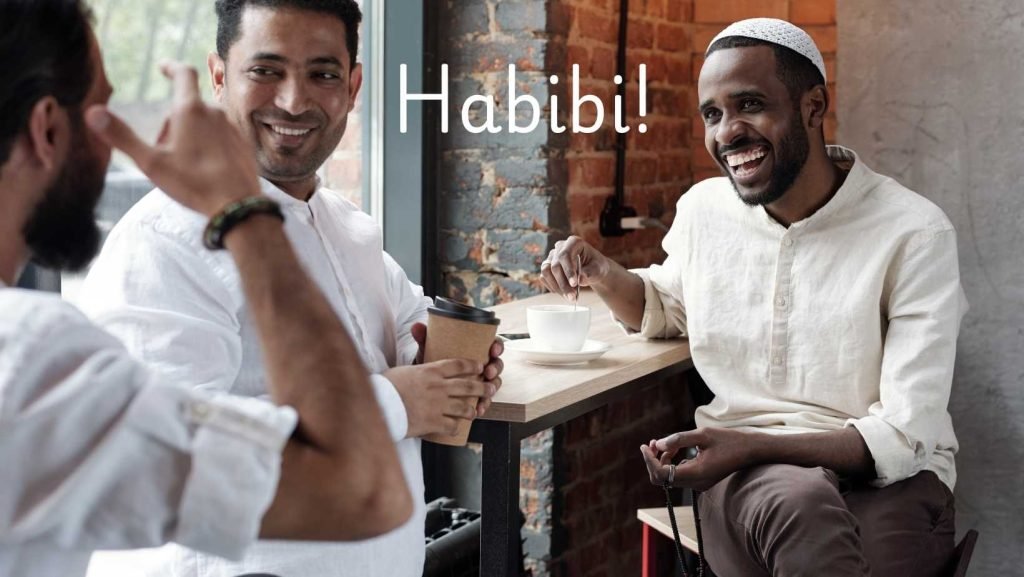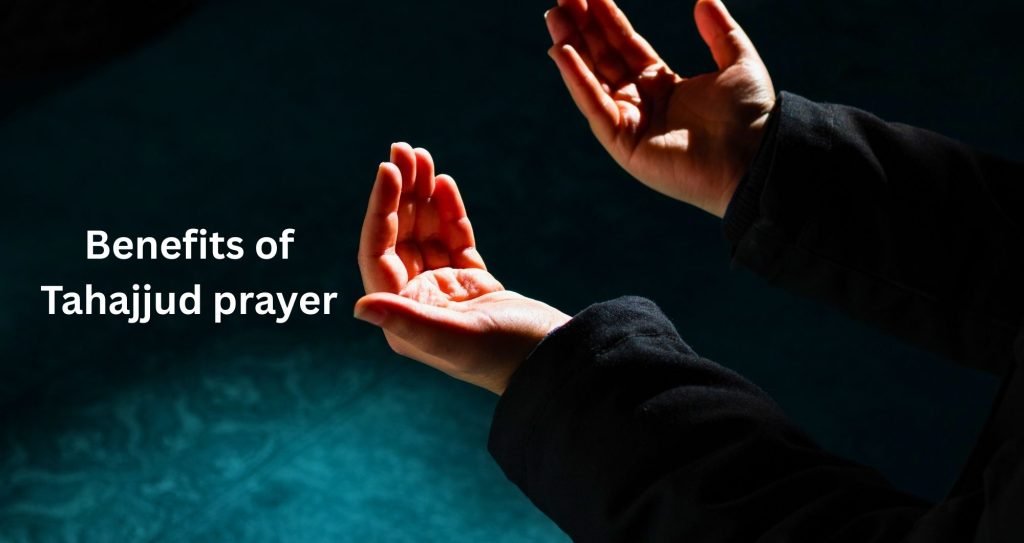You’ve heard the word in nasheeds. You’ve seen it in Arabic dramas. And perhaps someone even dropped a “habibi” in your photo comments, making you pause and wonder — was that just a compliment, or did it mean something more? If you’ve ever asked yourself this question, you’re definitely not alone. In fact, every month, thousands of people actively search, “What does Habibi mean?” “Habibi Meaning?” — and for good reason.
Thanks to the rise of social media, catchy songs, and viral reels, habibi has traveled far beyond the Arabic-speaking world. It has become a global expression — yet despite its popularity, many people still don’t understand what the word truly conveys. At first, it might seem like just another cute or trendy term. However, once you dig a little deeper, you’ll quickly discover that habibi carries layers of linguistic richness, emotional significance, and even spiritual value.
So, what makes habibi so meaningful? To begin with, it comes from the Arabic root word ḥubb (love), and it literally means “my beloved” or “my dear.” But beyond the literal translation, the word reflects a sense of deep affection — whether romantic, familial, or spiritual. This is especially important in Islamic culture, where terms of endearment are used not just in personal relationships, but also in religious expressions of love and respect. So, if you’ve ever wondered about the real meaning of habibi, you’ve come to the right place. This guide offers a thoughtful, respectful, and clear explanation — helping you not only understand the word but also appreciate the beauty behind it.
What Does Habibi Mean?
The word Habibi (حبيبي) literally means “my beloved,” “my dear,” or “my love” in Arabic. It comes from the root word “ḥubb” (حب), which means love. Interestingly, this root is one of the most frequently used in the Arabic language. In Islamic culture, love is not limited to emotion alone; it also encompasses compassion, mercy, and heartfelt affection — all values deeply encouraged in Islam.
When addressing a male, people use “Habibi,” while the feminine version is “Habibti” (حبيبتي). Both forms carry deep warmth, genuine affection, and emotional sincerity. These words are not reserved only for romantic relationships; rather, they often reflect the closeness shared between spouses, family members, or loyal friends.
In many Arabic-speaking Muslim communities, people commonly use “Habibi” when talking to a friend, a child, or even an elder. It’s not always romantic — often, it’s simply a friendly way to express care and connection. In fact, it beautifully mirrors the Islamic value of loving one another for the sake of Allah. This simple yet powerful word reflects the essence of brotherhood and sisterhood in Islam, where affection and kindness are shown freely and sincerely.
Habibi Meaning in Arabic Context
Within Arabic culture — which deeply overlaps with Islamic values — “habibi” is used as a sincere term of endearment. It can be heard in homes, marketplaces, masajid, and everyday conversations. For example:
- A father may say to his son: “Taal habibi” (Come, my dear).
- A friend may say: “Shukran habibi” (Thank you, my brother).
- An elder may affectionately greet a young boy as “habibi.”
Islam places great emphasis on kindness, mercy, and maintaining good ties, and this word reflects that gentle interaction. It’s not limited to emotional relationships; it can simply express warmth in a brotherly or fatherly way.

Habibi Meaning in English
In English, Habibi translates to:
- My beloved
- My dear
- My darling
- My love
- My Friend
However, none of these translations fully capture the cultural depth and emotional tone of “habibi.” Arabic, as the language of the Qur’an, is rich with layered meanings, where a single word can express deep emotion. While terms like “darling” or “dear” come close, they don’t match the versatility and timeless charm of habibi. It’s used in romantic, friendly, familial, and even spiritual contexts — making it far more than just a casual term of endearment.
Habibi Meaning in Hindi
For those who speak Hindi or Urdu, habibi may be best understood as:
- मेरा प्यारा (Mera Pyaara) – My dear
- जान (Jaan) – Life/soul (a very affectionate term)
- प्रिय (Priya) – Beloved
While these are beautiful expressions, “habibi” still has a unique charm that crosses linguistic boundaries. It doesn’t just signify emotional love — it can be deeply spiritual and respectful, especially in Muslim cultures.
What Does Habibi Mean in Bengali?
In Bengali, habibi can be translated as:
- আমার প্রিয় (Amar Priyo) – My beloved
- প্রিয়জন (Priyojon) – Dear one / loved one
- হৃদয়বান (Hridoyban) – Kind-hearted / beloved
- আমার বন্ধু (Amar Bondhu) – My Friend
In many Bengali-speaking Muslim communities — particularly in regions like Bangladesh — people actively use the word “habibi” when quoting Arabic texts or during religious gatherings. You’ll often hear it in Islamic speeches, nasheeds, or public recitations, where it serves to express deep love and reverence. Especially when referring to the Prophet Muhammad (peace be upon him) or his close companions, habibi adds an emotional and spiritual layer that resonates with the audience. As a result, the term continues to bridge cultural and linguistic gaps, while preserving the beauty of Arabic expression within Bengali-speaking traditions.
You may hear phrases like:
- “Habibi Rasulullah” – The Beloved, the Messenger of Allah
- “Ya Habibi Ya Rasul Allah” – O my beloved, O Messenger of Allah
This usage reflects a deep spiritual connection and reverence. So when you hear “habibi” in a Bengali or Islamic setting, know that it often carries more than just casual affection — it can signify sincere love for the sake of Allah.
Is “Habibi” Romantic or Religious?
The meaning of “Habibi” depends entirely on the context in which it’s used. While it can express romantic affection between spouses, it’s just as commonly used in non-romantic, respectful, and even spiritual settings. For instance, when a mother calls her son “habibi,” she’s expressing deep affection—not romance. Similarly, when someone says “Ya Habibi” in reference to Prophet Muhammad (peace be upon him), they’re conveying spiritual love and reverence, not romantic sentiment.
In Islam, love, mercy, and kindness are core values that believers are encouraged to practice daily. The term “habibi” beautifully reflects these values through language. It embodies warmth and connection, making it a meaningful word in many interactions. Therefore, as long as it’s spoken with respect and within proper boundaries, using “habibi” adds a touch of compassion and beauty to our speech—and it’s a tradition well worth preserving.
Common Variations of Habibi
- Habibti (حبيبتي): Female form – “my beloved (female)”
- Ya Habibi (يا حبيبي): “O my beloved” – commonly used in poetry and nasheeds
- Habib Albi (حبيب قلبي): “Beloved of my heart” – often found in classical Arabic expressions
- Habibi Rasulullah: “My beloved, the Messenger of Allah” – a term of love for the Prophet (peace be upon him)
Recommended: Subhanallah Meaning: A Deep Dive into Its Profound Significance
FAQ – Your Questions Answered
Q: What does Habibi mean in Arabic?
A: It means “my beloved” or “my dear,” used for a male.
Q: What is the female version of Habibi?
A: Habibti – it means “my beloved (female).”
Q: Is Habibi always romantic?
A: No. It can be used between friends, family, and even in religious contexts. It’s a term of love and closeness.
Q: What does Ya Habibi mean?
A: It means “O my beloved,” used in both casual and poetic/religious language.
Q: Is it okay for non-Arabs to say Habibi?
A: Yes, especially if it’s said respectfully and within context. Many Muslims use it around the world as part of religious expression and affection.
Final Thoughts
So there you have it — the true meaning of Habibi. It goes far beyond being just a trendy term or a catchy phrase from songs and social media reels. In reality, Habibi stands as a timeless expression, deeply rooted in both the Arabic language and Islamic tradition. It carries powerful meanings of love, mercy, and closeness — all of which are core values that Islam calls on us to live by each day.
Whether you’re greeting a close friend, showing affection to a family member, or expressing spiritual love for Prophet Muhammad (peace be upon him), using Habibi the right way matters. Words have power. And words like Habibi carry both meaning and responsibility. When we speak them with sincerity and intention, we don’t just communicate — we embody the beauty and manners of Islamic character.
If this post gave you a fresh perspective or helped you understand Habibi better, don’t keep it to yourself — share it with your loved ones. Let’s work together to spread awareness and appreciation for the depth behind this beautiful word. Now that you know what Habibi truly means, take a moment to share the love and pass on the knowledge.


